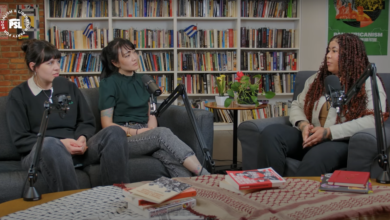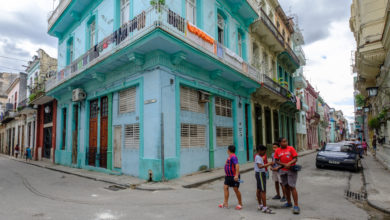Photo: President of Venezuela Nicolás Maduro among a crowd of supporters. Credit: X/@NicolasMaduro
The Party for Socialism and Liberation condemns the ongoing U.S. campaign to again undermine the integrity of the upcoming Venezuelan electoral process through economic and media war. For the past 10 years, the Venezuelan people and the government led by democratically elected President Nicolás Maduro have resisted one of the harshest sanctions regimes in history to defend the independence of their country and the process of socialist transformation called the Bolivarian Revolution. As the Biden administration launches yet another attempt to undermine Venezuela’s democratic processes, we reaffirm our commitment to fight for an end to all U.S. aggression and meddling in Venezuela.
In October 2023, the Venezuelan government and the “Unitary Platform”, a grouping of U.S.-backed opposition parties and organizations, signed an agreement regarding conditions and details for this year’s presidential election called the Barbados Agreement. The agreement outlined elements such as a proposed timetable, a rejection of political violence against Venezuelans or any of its state institutions, the presence of international observation missions, and conditions and guarantees for participation. The agreement was part of a process of dialogue which the Venezuelan government has promoted for the last several years in order to address the political crisis facing the country due to numerous U.S.-backed coup attempts.
After the agreement was signed, the U.S. Treasury’s Office of Foreign Assets Control (OFAC) announced that it was issuing four licenses which suspended several sanctions against the country and allowed for limited production, investment and sale in the Venezuelan oil, gas and gold sectors. While these coercive measures should have never been in place in the first place, their suspension marked an important advance to strengthen economic recovery efforts.
However, under the ridiculous pretext of “protecting democracy” the Biden administration has revoked one of the licenses for the gold sector and is threatening to not renew the license on the oil sector when it expires on April 18. Their justification? Venezuela is not allowing the right-wing coup supporter and sanctions backer María Corina Machado to run in the elections due to a 15-year disqualification dating back to 2015.
The Supreme Court ratified that decision on January 26, citing her participation in the Juan Guaidó coup attempt and associated acts of corruption that led to the loss of key state assets like the CITGO gas company. Machado was also a key player in the 2014 and 2017 waves of right-wing riots that led to the deaths of dozens of government supporters and those assumed to be government supporters because of the color of their skin. Her exclusion is completely legitimate and in line with common practices around the world that bar people who have committed serious crimes from holding public office.
Furthermore, the very same Barbados Agreement that the Biden administration has applauded outlines that candidates must defend Venezuela’s independence and reject violent actions against the government in order to qualify. Machado has been supporting U.S.-backed attacks on the Venezuelan state since the first coup attempt against Hugo Chávez in 2002!
At the moment there are 13 candidates successfully registered to compete in the July 28 presidential elections in Venezuela. Twelve of them are from opposition parties and coalitions, including Manuel Rosales, the governor from the state of Zulia who ran against Chávez in 2006. Since the Bolivarian Revolution came to power in 1999 with the first election of Chávez, nearly 30 different electoral processes have been held. These have seen broad participation from opposition parties, which on certain occasions have prevailed.
Venezuela also boasts one of the most advanced and well-audited voting systems in the region, which is done with electronic voting machines and has printed votes for posterior audits. This year, as a result of the Barbados Agreement, the European Union, CELAC, the U.S.-based Carter Center, BRICS, and the United Nations have all been invited to send missions to observe the elections.
What would constitute a respectable electoral process according to the U.S. government? There were no complaints from Washington during the Honduran elections in 2017 when the U.S.-backed narco-dictator Juan Orlando Hernández committed massive voter fraud – a fact even recognized by the Organization of American States – and stole the elections. The U.S. government under Donald Trump was the first country to recognize Hernández as the “rightful” winner of these sham elections amid a country-wide uprising against the fraud. Years later, Hernández now sits in a U.S. prison convicted of drug trafficking.
Venezuelan democracy has only become a problem because the candidates of the U.S. empire keep losing. And if a country serves the interests of Wall Street and the Pentagon, then they don’t need to have elections at all — take Saudi Arabia for example, a dictatorship ruled by a king. The July elections in Venezuela are under scrutiny simply because they are taking place in a country that has decided to break free and follow an independent path that prioritizes the interests of poor and working people.





